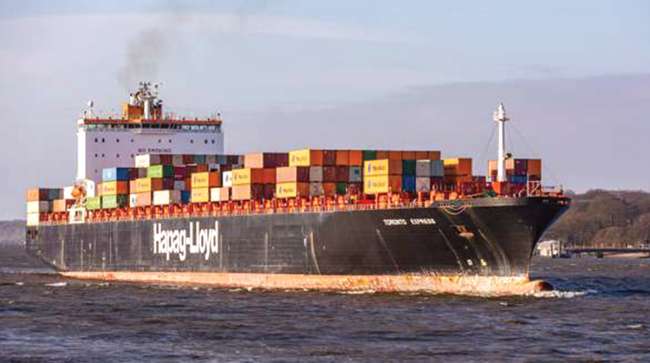Cargo Carriers Fear Port Strike Will Paralyze Half of Trade

[Stay on top of transportation news: Get TTNews in your inbox.]
The world’s top container carrier is urging customers to move U.S. cargo through East and Gulf Coast ports before the planned start on Oct. 1 of a dockworkers strike that threatens to paralyze as much as half the nation’s seaborne trade volumes.
MSC Mediterranean Shipping Co. SA, in a customer alert Sept. 26, said talks between the longshoremen’s union and port employers “may not be resolved” by the Sept. 30 deadline, resulting in closures at terminals starting Oct. 1. That would delay the shipping of containers — both imports and exports — on trucks and railroads through ports from Boston to Houston.
MSC ranks No. 11 on the Transport Topics Top 50 global freight carriers list.
“Booking adjustments including rolls to other vessels or cancellations may be needed,” MSC said in its advisory. The Geneva-based company said that it will continue to accept requests for dry cargo services while reserving the right to “not accept new refrigerated bookings.”
With less than two weeks before a potential U.S. port strike, many automotive companies face significant risk to their supply chain operations. In our latest Q&A we cover some of the top questions and explore alternative options to minimize the impact ➡️https://t.co/w2ZE532Oq6 pic.twitter.com/sHaGakJFsd — C.H. Robinson (@CHRobinson) September 19, 2024
Hapag-Lloyd AG, which ranks No. 13 on the TT list, said bulk and breakbulk cargo could also be affected. It cautioned that a labor action would raise freight rates.
“Shipping costs, including freight, warehousing, and drayage rates, are expected to rise due to increased demand for alternative routes and port services,” the Hamburg-based carrier said in a note posted on its website. “Emergency surcharges may also be applied to account for additional handling and congestion.”
Customers may not be able to easily shift to alternative routes, either. C.H. Robinson Worldwide Inc., one of the largest U.S. freight brokerages, cautioned in a statement that, “in the event of a strike beginning October 1, contingency routes could become overwhelmed very quickly.”
C.H. Robinson ranks No. 2 on the Transport Topics Top 100 list of the largest logistics companies in North America.
Oxford Economics estimated that a strike would cost the U.S. economy $4.5 billion to $7.5 billion a week — a hit to gross domestic product that would be reversed after it’s over and shipments resume.
TT's Seth Clevenger and Erika Voss of DAT Freight and Analytics discuss crucial strategies and best practices for safeguarding information and assets in a high-demand period. Tune in above or by going to RoadSigns.ttnews.com.
But the fallout of even a short strike would be costly for many retailers, manufacturers and other importers trying to ensure timely shipments and adequate inventories heading into the fourth quarter.
According to Oxford Economics, every week cargo is stalled and backlogs created will take a month to clear because West Coast ports — which could become alternative gateways for goods trade — are already operating at capacity.
For now, a change to its U.S. economic forecast isn’t warranted, Grace Zwemmer at Oxford Economics wrote in a research note Sept. 26.
“However, the strike has the potential to weigh on the October employment report at a time when the Federal Reserve is highly attuned to signs of weakness in the labor market,” she said.
Fearing strike disruptions, many shippers have front-loaded orders in recent months.
Want more news? Listen to today's daily briefing above or go here for more info
From July through Sept. 22, Atlantic and Gulf coast ports have seen a 27% year-over-year increase in vessel arrivals, according to data from FourKites Inc., a supply chain visibility platform.
“I suspect a tapering down of the number of vessels this week and next as fears of them being forced to anchor off the coast start to kick in,” said Mike DeAngelis, senior director of international solutions at Chicago-based FourKites.
The outlook for any talks to restart before Sept. 30 looks bleak, with no negotiations scheduled.





